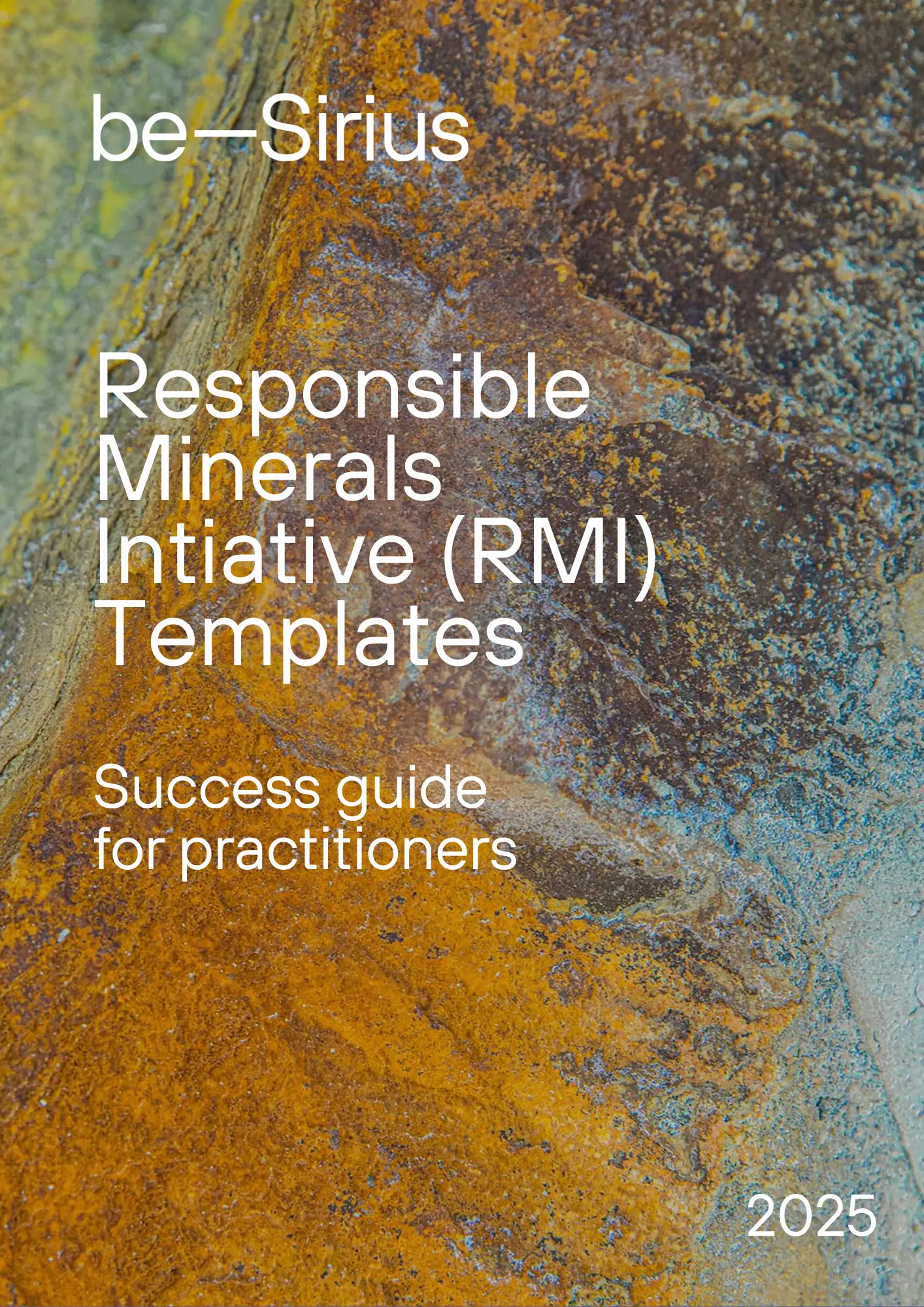How to complete CMRT, EMRT and AMRT templates
A practical, expert-led guide for sustainability, compliance and procurement teams working with minerals due diligence. Get a clear, step-by-step explanation of each RMI template plus tips to avoid common mistakes.
Why this guide matters
Companies across mining, metals, manufacturing, electronics, automotive and energy supply chains rely on RMI templates to report smelters, refiners and mineral origins. But due diligence cycles are getting more complex, supplier data is inconsistent, and template versions change frequently.
This guide explains when each template is used, what information is required, the steps involved in preparing a submission and the challenges teams often face. It also shows how beSirius reduces the workload across the entire process - automating data filling, consolidating supplier inputs, validating versions and smelters, supporting collaboration and reusing information across all disclosures.
What’s inside the guide
- A clear overview of RMI and its three templates (CMRT, EMRT and AMRT)
- Clarity on who completes each template and in which situations
- A step-by-step breakdown of the preparation process
- Insight into the main challenges companies encounter
- How beSirius automates the hard parts
- How beSirius improves the process and solves the main challenges
What you’ll learn
Q: What is included in the beSirius RMI Templates Guide?
A: The following topics are covered:
- The purpose of CMRT, EMRT and AMRT
- Which minerals each template covers
- Who must report and what triggers a request
- The full workflow for preparing a compliant submission
- Common supplier and smelter data challenges
- How to validate template versions and fields
- How to improve accuracy, traceability and due diligence quality
- How beSirius automates large parts of the process
Q: Who should download this guide?
A: Any company working with minerals due diligence, especially in electronics, automotive, batteries, energy equipment, metals, mining and industrial manufacturing.
Q: Why are RMI templates important?
A: They provide a unified structure for mineral sourcing data and are widely accepted across global supply chains and regulatory frameworks.
Are you looking for a smarter way to complete your CMRT assessment? Or do you want to streamline all three templates – CMRT, EMRT and AMRT? Discover the full beSirius RMI Templates module, designed to automate the manual parts of your workflow and keep your reporting consistent, accurate and up to date.


